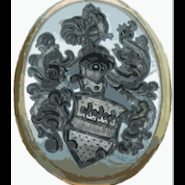[Myanmar] ‘Ne Win Manipulated Educational Affairs’
-
Recently Browsing 0 members
- No registered users viewing this page.
-
Topics
-
-
Popular Contributors
-
-
Latest posts...
-
20
UK Fears grow over migrant protests: Warnings of unrest as tensions rise in UK communities
Apart from those stupid things first you have to accept that those migrants are there. You can't kill them, can you? Secondly you have to find out how to integrate those asylum seekers. Shouting on streets shows only your inability for solutions. Thirdly you have to start with dialogue. What are the necessities to help? Language? Work? Also start cooking or baking with them. It will strengthen the community. Let the children play together. And don't forget: They are looking for humanitarian asylum, traumatized over a long time. And instead to help them you would rather send them....where? They came to YOU asking for help and you want to give them a slap on the faces? -
56
Economy Thailand Rejects 0% Tax Deal with US, Cites Risk to Local Farmers
Yeah; i remember Prayut telling distressd Rubber Famers they should use their 'savings' to grow Coconuts instead as they were more lucrative ! -
56
Economy Thailand Rejects 0% Tax Deal with US, Cites Risk to Local Farmers
Wasn't Thailand the one that made to offer? -
11
Economy Duty-Free Giant King Power Closes Shops in Bangkok and Pattaya
Yes, I'll have to do that differently next time, while waiting at the airport I like to drink a few glasses of wine in the evening, but at Suvarnabhumi it's 400 THB/glass. You'll understand what I'll do next time. -
-
50
Report Black Sabbath Legend Ozzy Osbourne Dies at 76: A Final Bow in Birmingham
6435e27118970a2203a7bb567ab2f611.mp4- 1
-

-
-
Popular in The Pub







Recommended Posts
Create an account or sign in to comment
You need to be a member in order to leave a comment
Create an account
Sign up for a new account in our community. It's easy!
Register a new accountSign in
Already have an account? Sign in here.
Sign In Now